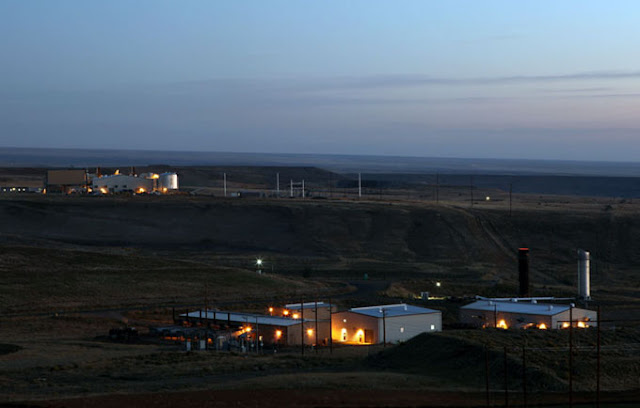PSE’s RNG program will offer utility customers the option to replace an equal amount of their conventional natural gas use with renewable natural gas. For every block of RNG a customer purchases, they see a credit on their bill for an equivalent amount of conventional natural gas not used. Already, more than 1,200 PSE customers have enrolled in RNG since its launch in December of 2021.
Supply for RNG comes exclusively from a long-term contract with Klickitat Public Utility District. Methane from a Washington landfill is captured, processed into pipeline quality gas and transported to PSE’s natural gas system.
“If not captured and refined into renewable natural gas, methane from the landfill would otherwise leak into the atmosphere,” said Will Einstein, PSE Director of New Product Development. “Instead, RNG gives customers a way to benefit from innovative technology and reduce their carbon footprint at the same time.”
As part of PSE’s aspirational Beyond Net Zero Carbon goal, PSE aims to reach net zero carbon emissions for natural gas used in customer homes and businesses by 2045, with an interim target of a 30 percent emissions reduction by 2030.
Complementary energy systems — electricity and piped energy — are critical to ensuring customers have reliable, affordable and clean energy, especially at times of peak demand, such as a cold winter day. RNG is a key part of PSE’s strategy to reduce carbon emissions, as is the development of clean fuels like hydrogen.
To learn more about RNG or to sign up, visit pse.com/rng. For more on PSE’s work to support clean fuel development for electricity generation and in the pipeline delivery system, visit pse.com/cleanfuels.
How the RNG works
PSE gas customers can purchase up to three blocks of RNG for $5 per block. Each block is the equivalent of 3.2 therms of conventional natural gas use – or about 5 percent of the average residential customer’s monthly gas use. Customers receive a small bill credit – approximately $1 per month – per block for the commodity cost of the conventional natural gas they’re replacing.
What is renewable natural gas?
The decomposition of plant and animal material at waste landfills, water treatment plants, livestock farms and more produces methane that can be upgraded to pipeline quality and used as a replacement for conventional natural gas.
Updated wording 6-7-22
To learn more about RNG or to sign up, visit pse.com/rng. For more on PSE’s work to support clean fuel development for electricity generation and in the pipeline delivery system, visit pse.com/cleanfuels.
How the RNG works
PSE gas customers can purchase up to three blocks of RNG for $5 per block. Each block is the equivalent of 3.2 therms of conventional natural gas use – or about 5 percent of the average residential customer’s monthly gas use. Customers receive a small bill credit – approximately $1 per month – per block for the commodity cost of the conventional natural gas they’re replacing.
What is renewable natural gas?
The decomposition of plant and animal material at waste landfills, water treatment plants, livestock farms and more produces methane that can be upgraded to pipeline quality and used as a replacement for conventional natural gas.
Updated wording 6-7-22



RNG will never completely replace fossil fuel nat gas, but capturing this as a waste product from landfills keeps it from being a potent GHG even if it ends up being burned in the end use.
ReplyDelete